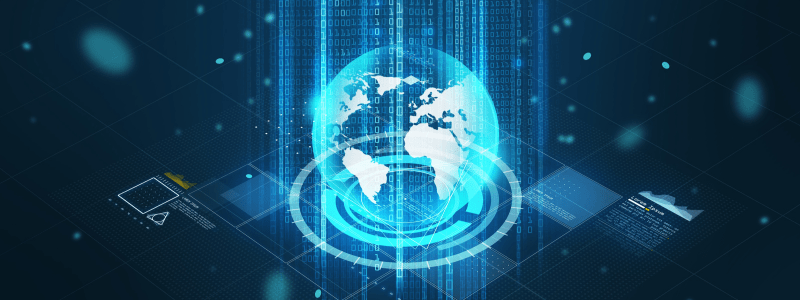
In today’s digital age, the importance of cybersecurity cannot be overstated. As cyber threats continue to evolve, businesses and individuals alike must stay ahead of the curve. One way to enhance your cybersecurity measures is by utilizing security virtual appliances. But what exactly are these, and why are they so crucial in 2024? Let’s dive in!
What Are Security Virtual Appliances?
Security virtual appliances are software-based solutions designed to provide network security functionalities similar to those of traditional hardware-based appliances. These virtual solutions run on virtualized environments, such as virtual machines or cloud infrastructures, offering flexibility and scalability.
Definition and Explanation
A security virtual appliance can perform various functions, including firewall protection, intrusion detection and prevention, VPN services, and more. Unlike physical devices, these virtual appliances can be easily deployed, configured, and managed through software interfaces.
Benefits of Using Virtual Appliances
- Flexibility: Easily scalable and adaptable to changing network needs.
- Cost-Effective: No need for physical hardware, reducing upfront costs.
- Quick Deployment: Faster installation and configuration compared to physical devices.
- Ease of Management: Centralized management through software platforms.
Why Cybersecurity Matters in 2024
Cybersecurity is more critical than ever. With the increasing number of cyber threats and sophisticated attack techniques, protecting your digital assets is paramount.
Rise in Cyber Threats
Cyber threats are growing in both number and complexity. From ransomware to phishing attacks, cybercriminals are constantly finding new ways to exploit vulnerabilities.
Evolving Cyberattack Techniques
As technology advances, so do the methods used by hackers. AI-driven attacks, advanced persistent threats (APTs), and zero-day exploits are just a few examples of the sophisticated techniques being employed.
Top Security Virtual Appliances for 2024
With numerous options, selecting the right security virtual appliance can be daunting. Here’s an overview of the top choices for 2024.
Overview of Top Choices
Our list includes solutions from leading cybersecurity companies, each offering unique features and capabilities.
Selection Criteria
We evaluated these virtual appliances based on their performance, features, ease of use, and overall value.
1. Cisco Firepower NGFW Virtual
Cisco’s Firepower NGFW Virtual is a robust solution offering advanced threat protection and comprehensive security features.
Key Features
- Intrusion prevention system (IPS)
- Advanced malware protection
- Application visibility and control
Pros and Cons
- Pros: High performance, and excellent threat intelligence integration.
- Cons: Can be complex to configure, higher cost.
2. Fortinet FortiGate VM
Fortinet’s FortiGate VM delivers top-notch security with high performance and extensive feature sets.
Key Features
- Unified threat management (UTM)
- SSL inspection
- Integrated SD-WAN capabilities
Pros and Cons
- Pros: Easy to manage, cost-effective.
- Cons: Limited third-party integrations.
3. Palo Alto Networks VM-Series
Palo Alto Networks VM-Series is known for its robust security and advanced capabilities.
Key Features
- Next-generation firewall (NGFW)
- Threat intelligence cloud
- Deep packet inspection
Pros and Cons
- Pros: Superior security features, and high scalability.
- Cons: It can be an expensive, steep learning curve.
4. Sophos XG Firewall Virtual
Sophos XG Firewall Virtual offers excellent security with an intuitive interface and comprehensive features.
Key Features
- Synchronized security
- Web and app filtering
- VPN support
Pros and Cons
- Pros: User-friendly, affordable.
- Cons: Limited customization options.
5. Check Point CloudGuard IaaS
Check Point CloudGuard IaaS provides advanced threat prevention for cloud environments.
Key Features
- Automated threat prevention
- Advanced security management
- High availability
Pros and Cons
- Pros: Strong cloud integration, and robust security features.
- Cons: Can be resource-intensive, premium pricing.
6. Juniper Networks vSRX
Juniper Networks vSRX is a high-performance virtual firewall offering extensive security features.
Key Features
- NGFW capabilities
- Secure SD-WAN
- Unified threat management
Pros and Cons
- Pros: High performance, and excellent threat management.
- Cons: Complex configuration, higher cost.
7. Trend Micro Deep Security
Trend Micro Deep Security provides comprehensive protection for data centers and cloud environments.
Key Features
- Anti-malware
- Web reputation
- Intrusion prevention
Pros and Cons
- Pros: Strong protection, easy to deploy.
- Cons: Limited advanced features, higher cost for premium features.
How to Choose the Right Virtual Appliance for Your Needs
Selecting the right virtual appliance depends on various factors. Here are some tips to help you make an informed decision.
Assessing Your Cybersecurity Needs
Determine your specific security requirements based on your organization’s size, industry, and threat landscape.
Budget Considerations
Consider your budget and weigh the cost of the appliance against its features and benefits.
Compatibility and Integration
Ensure the virtual appliance is compatible with your existing infrastructure and can integrate with other security solutions.
Deployment Tips and Best Practices
Proper deployment is crucial to maximizing the effectiveness of your security virtual appliance.
Planning Your Deployment
Develop a detailed deployment plan that includes timelines, resources, and roles.
Configuration and Management
Properly configure the appliance and establish management protocols to maintain security.
Regular Updates and Monitoring
Keep the appliance updated and continuously monitor for potential threats and performance issues.
Future Trends in Security Virtual Appliances

The future of security virtual appliances looks promising, with several trends shaping the landscape.
AI and Machine Learning Integration
AI and machine learning are increasingly integrated into security solutions to enhance threat detection and response.
Cloud-Native Security Solutions
As more organizations move to the cloud, cloud-native security solutions are becoming more prevalent.
Conclusion
In conclusion, security virtual appliances are essential tools for enhancing cybersecurity in 2024. By understanding your needs and carefully selecting the right solution, you can significantly bolster your defense against cyber threats.
FAQs
1. What is a Security Virtual Appliance?
A security virtual appliance is a software-based solution that provides network security functionalities, such as firewall protection and intrusion detection, in a virtualized environment.
2. How do Virtual Appliances Improve Cybersecurity?
Virtual appliances improve cybersecurity by offering flexible, scalable, and cost-effective solutions that can be easily managed and updated to protect against evolving threats.
3. What Should I Look for in a Security Virtual Appliance?
When choosing a security virtual appliance, consider factors such as performance, features, ease of use, compatibility with your infrastructure, and cost.
4. Are Security Virtual Appliances Expensive?
The cost of security virtual appliances varies, but they are generally more cost-effective than physical hardware appliances due to lower upfront costs and easier management.
5. Can Small Businesses Benefit from Security Virtual Appliances?
Yes, small businesses can benefit significantly from security virtual appliances as they provide robust protection without the need for extensive IT resources or large budgets.
For more insights on how to enhance your cybersecurity, check out our article on Network Security Monitoring: Protect Your Data.
